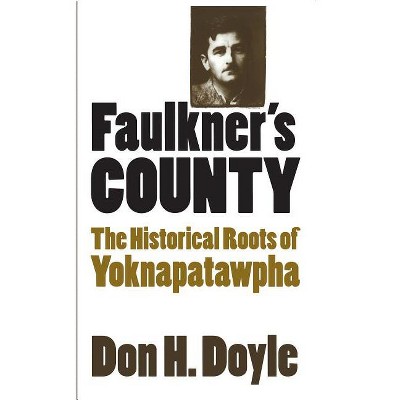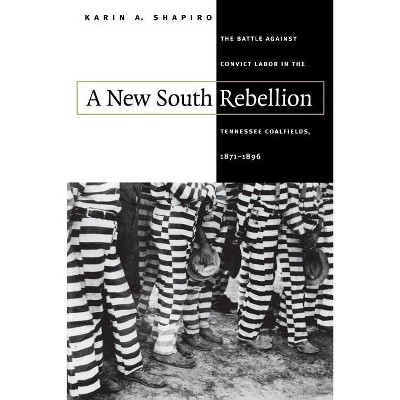Sponsored

From Slavery to Agrarian Capitalism in the Cotton Plantation South - (Fred W. Morrison Series in Southern Studies) 2nd Edition by Joseph P Reidy
In Stock
Sponsored
About this item
Highlights
- "Reidy has produced one of the most thoughtful treatments to date of a critical moment in southern history, placing the social transformation of the South in the context of 'the age of capital' and the changes in the markets, ideologies, etc. of the Atlantic world system.
- About the Author: Joseph P. Reidy is professor of history at Howard University.
- 376 Pages
- Social Science, Anthropology
- Series Name: Fred W. Morrison Series in Southern Studies
Description
About the Book
From Slavery to Agrarian Capitalism in the Cotton Plantation South: Central Georgia, 1800-1880Book Synopsis
"Reidy has produced one of the most thoughtful treatments to date of a critical moment in southern history, placing the social transformation of the South in the context of 'the age of capital' and the changes in the markets, ideologies, etc. of the Atlantic world system. Better than anyone perhaps, Reidy has elaborated both the large and small narratives of this development, connecting global forces with the initiatives and reactions of ordinary southerners, black and white." -- Thomas C. Holt, University of Chicago"Joseph Reidy's detailed analysis of social and economic developments in central Georgia during and after slavery will take its place among the standard works on these subjects. Its discussions of the expansion of the cotton kingdom and of the changes after emancipation make it necessary reading for all concerned with southern and African-American history." -- Stanley Engerman, University of Rochester
"Successfully places the experience of one region's people into the larger theoretical context of world capitalist development and in the process challenges other scholars to do the same." -- Rural Sociology
From the Back Cover
'Sets a splendid example for future studies....Throughout this story, African Americans' struggle to build their own world with the materials available to them shines through clearly. Reidy has told their story simply and well.' - Journal of the Early RepublicReview Quotes
Necessary reading for all concerned with southern and African-American history.
Stanley Engerman, University of Rochester
Reidy has produced one of the most thoughtful treatments to date of a critical moment in southern history.
Thomas C. Holt, University of Chicago
This book is an impressive and significant contribution to southern history.
"Southern Cultures" "An excellent monograph to use in a U.S. history survey or in a seminar on the American South."--###Southern Economic Journal# "Sets a splendid example for future studies. . . . Throughout this story, African Americans' struggle to build their own world with the materials available to them shines through clearly. Reidy has told their story simply and well."--###Journal of the Early Republic#
"Necessary reading for all concerned with southern and African-American history.
Stanley Engerman, University of Rochester"
"Reidy has produced one of the most thoughtful treatments to date of a critical moment in southern history.
Thomas C. Holt, University of Chicago"
"This book is an impressive and significant contribution to southern history.
"Southern Cultures" ""An excellent monograph to use in a U.S. history survey or in a seminar on the American South.""--###Southern Economic Journal# ""Sets a splendid example for future studies. . . . Throughout this story, African Americans' struggle to build their own world with the materials available to them shines through clearly. Reidy has told their story simply and well.""--###Journal of the Early Republic#"
An excellent monograph to use in a U.S. history survey or in a seminar on the American South.
"Southern Economic Journal"
The most important book among 'new' emancipation studies.
Choice"
About the Author
Joseph P. Reidy is professor of history at Howard University. He is coeditor of four volumes in the multivolume project, Freedom: A Documentary History of Emancipation, 1861-1867.Shipping details
Return details
Trending Non-Fiction











